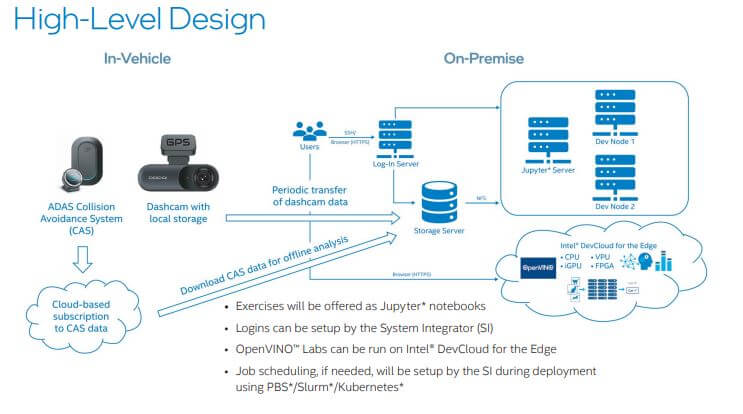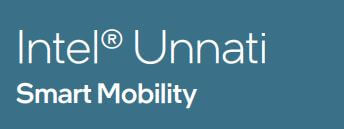Road Safety in the Indian Context :
Per the Government of India’s MyGov website1, India still ranks first in the number of road accident deaths across 199 countries, and accounts for almost 11% of all accident-related deaths in the world. The Government is taking road safety as a top priority and is endeavouring to reduce road accidents by 50% by 2024; and it sees significant opportunities for the application of AI-driven technologies to remove human interference and the possibility of errors, thereby improving efficiencies and safety in traffic movement.
Advanced Driver Assistance Systems (ADAS) :
ADAS systems are electronic systems that use AI and other advanced technologies to assist the driver. With features such as Collision Warning, Pedestrian Detection and Lane Departure Warning among others, these systems minimise human error and reduce road fatalities. With a vision of fewer crashes and mobility for all, Intel is developing ADAS systems as the building blocks for the future of autonomous driving.

Key Benefits
For Institutions :
• Build hands-on exposure to AI technologies driving Smart Mobility and next generation AI-based Mobility solutions
• Leverage Smart Mobility infrastructure across multiple engineering disciplines
• Learn about Indian datasets for AI and challenges in data collection
• Contribute to building India-specific datasets for Smarter and Safer Mobility (e.g., GreySpot map for India)
For Students :
• How modern AI techniques are driving next generation vehicles
• How infrastructure safety can become more predictive with data
• How India can lead the world with unique AI datasets and applications
DOWNLOAD
SUGGESTED LAB CONFIGURATION
| Infrastructure | Minimum Suggested Configuration | |
| 25 x Collision Avoidance Systems (CAS)5 x Dashcams | • Intel Onboard Smart Mobility Solution – SafetyPro – powered by Mobileye 8 Connect• DDPAI Mola N3 Car Dash Camera with GPS Bracket, 2K+ 1600P UHD, 5MP, F1.8 Aperture, 140° Wide Angle, WiFi, 1GB RAM, 128GB Storage | • Intel Onboard Cloud access for alerts• Cloud access to contribute to GreySpot Map |
| 3 x NodesNote: You could use one node as the Jupyter* Server | • Dual Intel® Xeon® Gold 5318Y, 24 cores, 2.1 GHz base frequency, 36 MB cache• 256GB Memory: 16 x 16GB of 2993 MHz DDR4 ECC Registered Memory • 1TB SSD | • Ubuntu* 18.04
• Intel® oneAPI Base Toolkit + Intel® AI Analytics Toolkit • Horovod* + Intel® MPI (if distributed DL training with TensorFlow*) • IPEX (Intel® Extension for PyTorch*) • Intel® Distribution of OpenVINO™ Toolkit Note: Check oneContainer Portal† for available AI containers Jupyter* Server• Ubuntu* 18.04 • JupyterHub* and JupyterLab* • Keras*, ipykernel*, Seaborn* + other libs as required |
| 1-2 x GPU Card | Please contact your System Integrator for GPU recommendations. | |
| 1 x Storage Server | At least 2 TB space | |
| 1 x Log-In Server | • Intel® Xeon® Silver 4310, 12 cores, 2.1 GHz, 18 MB cache, 128 GB RAM, 500GB SSD | • Ubuntu* 18.04 |
| + Network Router with 1Gbps Ports, Network Switch, Rack Cabinet, Power Delivery Unit (PDU), Patch Cables, an and Power Cable | ||
| + Software for job scheduling and queueing, if needed | ||
| Note: OpenVino™ labs will be run on Intel® DevCloud for the Edge | ||


